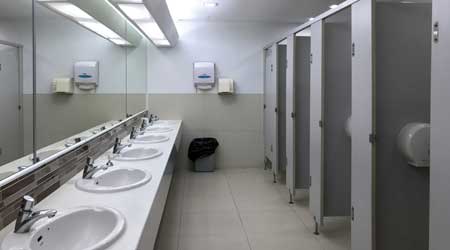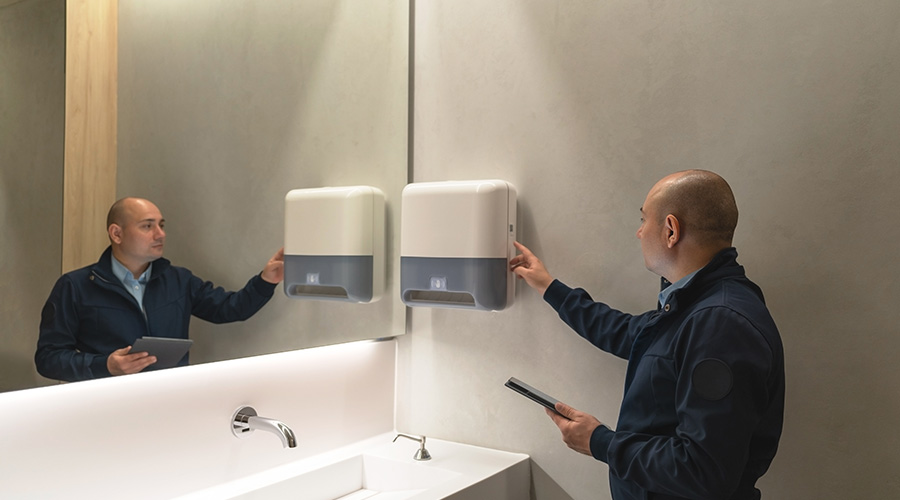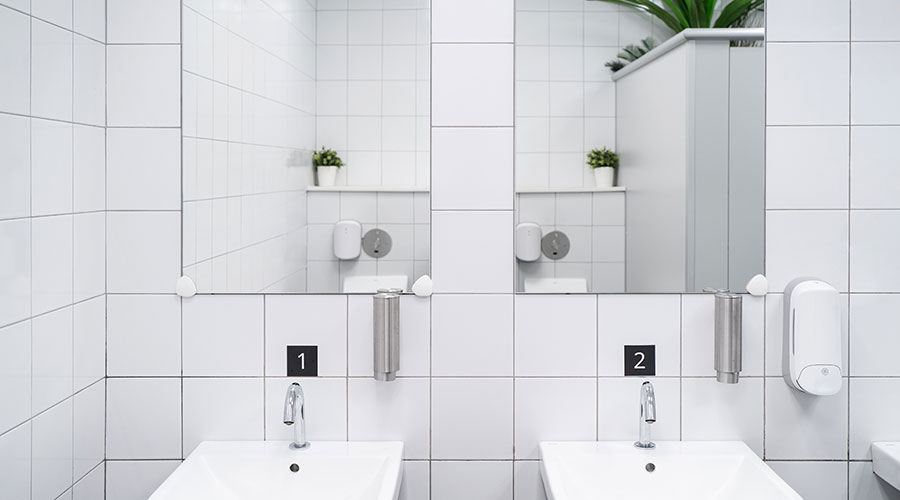What Does COVID-19 Mean for Restroom Upgrades?
The coronavirus pandemic has increased the urgency of the main goals behind restroom renovations, including improved hygiene and improved accessibility.
The traditional driving factors behind restroom renovations have been water conservation, lower maintenance costs, improved accessibility, and improved hygiene. The arrival of the coronavirus and COVID-19 has not lessened the importance of these goals. They have only increased the urgency of completing those renovations in order to ensure restrooms are as safe as possible for building occupants and visitors.
Restrooms already had been moving toward touchless operations. Many maintenance and engineering managers had replaced standard water closets, urinals, faucets, air dryers and towel dispensers with touchless models to reduce operating and maintenance costs and improve hygiene. Concerns over COVID-19 have only made it important to move more quickly in that direction.
While many of the goals of restroom renovations remain the same, there is one difference now – COVID-19 is forcing managers to look at the operation of their restrooms in a different light. They have increased the frequency of restroom cleaning and inspection. They have specified more effective cleaning chemicals to fight bacteria and viruses.
Those changes are operational. Managers also are undertaking structural changes. Toilet stall doors are being redesigned for nearly touchless operation through the use of foot operators. Occupancy counters are being installed in restrooms so that cleaning schedules can be adjusted to match restroom use rather than simply following a set schedule.
As managers continue to cope with the coronavirus and COVID-19, manufacturers will develop new products and systems to help make restrooms as safe as possible. Managers will have to keep up with these changes and avoid the trap of planning renovations the same way they have always done them.
James Piper, P.E., is a national facilities consultant based in Bowie, Md. He has more than 35 years of experience with facilities maintenance, engineering and management issues.
Related Topics:














